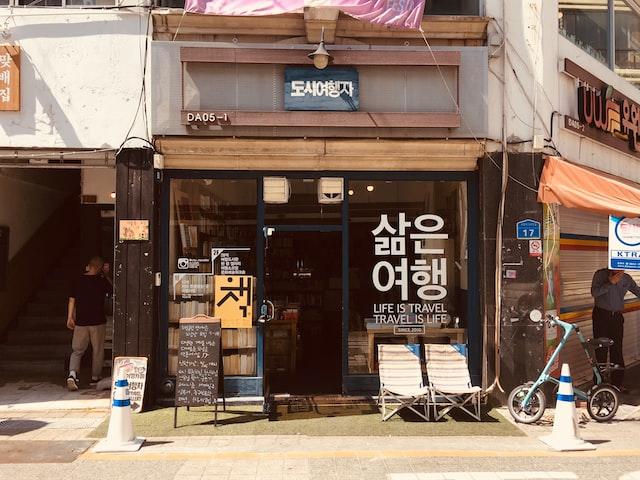Do you know that October 9th marks a very important occasion in the history of the Korean language?
On this date, South Koreans celebrate Hangeul Day in order to commemorate the achievement of King Sejong, who invented and introduced the Hangeul system in the 15th century.
Without the Hangeul system, Koreans will still be using Chinese characters in their primary writing system. It also means that we would probably have a hard time relating to the language as compared to what we experience today.
In other words, without the Hangeul system, there would probably be no need for the Test of Proficiency in Korean (TOPIK) today too!
But, here we are in the 21st century where we have seen how the Korean language has been mapped out internationally through literature, film, education and even the global economy.
Korean language enthusiast, you're at the right place if you are planning to up your Korean language game.
In this article, we will be discovering the different elements of the TOPIK I and TOPIK papers and reviewing some of the important information that you need to know about the tests.

What Are The Benefits Of Learning Korean And Sitting for TOPIK?
Let's move beyond flaunting the simple phrases of Annyeonghaseyo and Saranghaeyo when people ask you if you can speak or read Korean.
You need to set your mind to learning Korean officially by mastering the Hangeul system, grammar structures and also the correct pronunciation before you can call yourself fluent in this language.
That being said, here are three amazing benefits that you will reap once you embark on the journey of learning Korean and conquering the TOPIK papers.
Benefit 1: Master a globalised language for personal growth
The journey of achieving fluency in a totally new language will not only bring the best out in you but also gives you a great sense of achievement throughout the process.
It is a worthwhile self-investment that you can give to yourself at any time of your life as long as you are willing to start. Furthermore, the act of registering for TOPIK I and subsequently TOPIK II will provide you with a clear direction and goal to work on.
Benefit 2: Lead to many job opportunities in the future
You'll be surprised at the number of jobs that require us to be multilingual these days even if you are based in Malaysia. From working at a multinational corporation, a university, an embassy or a concert organizer company, there are many local employers who are actively looking for those who can speak, read and write Korean.
Not only that, your proficiency in Korean will also open many doors for you to establish a flexible side hustle as a Korean tutor, Korean interpreter and translator in the long run. Your TOPIK scores will serve as a great proof of your Korean language skills, especially in the listening, reading and writing components.
Do not underestimate the power of languages in an increasingly globalised world!
Benefit 3: Travel to Korea with ease
When you are fluent in Korean, you do not have to worry about asking for directions or ordering what to eat during your holidays in Korea.
You can easily read the shop signs, and names of train stations and even haggle like a native when you are at the Korean street market.

Photo by Yonghyun Lee on Unsplash
You will depend less on Google Translate throughout your trip and feel more relaxed during your stay there. Isn't that something wonderful?
Read this article to discover the overall examination structure and tested components for your TOPIK.
What You Should Know About The Latest Examination Format For TOPIK In 2023?
Now, we will talk about the components that you will be tested for your TOPIK I and TOPIK papers.
For TOPIK I, you will be tested on the listening and reading component. This test is ideal if you are an absolute beginner who has learnt the Hangeul system and studied the basic grammar structures and knows quite a bit of Korean vocabulary and phrases.
TOPIK I (Listening)
- Number of questions: 30 multiple-choice questions
- Test duration: 40 minutes
- Points: 100 points
TOPIK I (Reading)
- Number of questions: 40 multiple-choice questions
- Test duration: 60 minutes
- Points: 100 points
For TOPIK II, you will be tested on three components: the listening component, reading component and writing component. This test is catered for intermediate to advanced Korean learners and for those who are looking to study/work in Korea one day.
TOPIK II (Listening)
- Number of questions: 50 multiple-choice questions
- Test duration: 60 minutes
- Points: 100 points
TOPIK II (Reading)
- Number of questions: 50 multiple-choice questions
- Test duration: 70 minutes
- Points: 100 points
TOPIK II (Writing)
- Number of questions: 4 questions (short answer and essay)
- Test duration: 50 minutes
- Points: 100 points
Soft launching of a speaking component
As you can tell, the speaking component is not a tested component for TOPIK I and II originally. However, there are reports that mock TOPIK speaking tests have been conducted on a small scale in Korea to make way for the soft launching of a speaking component beginning in 2023.
Here's what you should know about the grading scale for the speaking component so far.
| Score Level | Score Range |
|---|---|
| Fail | 0-19 |
| Level 1 | 20-49 |
| Level 2 | 50-89 |
| Level 3 | 90-109 |
| Level 4 | 110-129 |
| Level 5 | 130-159 |
| Level 6 | 160-200 |
Candidates will be given time to prepare to talk about various topics, role play, and participate in some Q and A sessions based on the given scenario.

Source: Xframe
Also, do remember that your TOPIK results are valid for 2 years once you receive the certificate. Once you have familiarised yourself with the format of TOPIK, you should learn more about the marking scheme of this exam.

What Are The Differences Between TOPIK I and TOPIK II Now?
Let's do a bit of a recap about the major differences between TOPIK I and TOPIK II.
The inclusion of the writing component in TOPIK II
You can expect a longer and more detailed preparation for TOPIK II because of the writing component. You have to answer 2 short questions and write 2 essays.
You can refer to the below table for the marking scheme of the writing component.
| Evaluation Category | Evaluation Criteria |
|---|---|
| Content and task execution | Are the written contents suitable for the presented task? |
| Use of language | Are the correct vocabulary, grammar and spacing used in the final answers? |
The next table shows the marking criteria of the essays.
| Evaluation category | Evaluation criteria |
|---|---|
| Content and task execution | Has the given task been answered adequately? Is the writing rich in content? Is the essay structured in a diversified manner? |
| Development structure | Is the writing structure logical and clear, and the key idea conveyed well? Are discourse markers used properly to develop the points logically? |
| Use of language | Are the grammar, vocabulary and phrasing used in a diversified manner? Are the choice of vocabulary and spelling correct? Is the final essay in alignment with the correct level of formality according to the purpose and function of the essay? |
Scoring level
You can review the table below to look at what the different scoring levels of TOPIK I and TOPIK II imply.
| TOPIK I Level | Passing Mark (Over 200 points) | Evaluation Criteria |
|---|---|---|
| 1 | Above 80 points | Able to carry out basic conversations related to daily survival skills such as self-introduction, purchasing, ordering food, etc., and to understand the contents related to personal and familiar subjects such as himself/herself, family, hobby, weather and the like. Able to create simple sentences based on about 800 basic vocabulary items and possess understanding of basic grammar. Able to understand and compose simple and useful sentences related to everyday life. |
| 2 | Above 140 points | Able to carry out simple conversations related to daily routines such as making phone calls and asking for favours, as well as using public facilities in daily life. (Able to use about 1,500 to 2,000 vocabulary and understand personal and familiar subjects in certain order, such as paragraphing.) Able to use formal expressions and informal expressions accordingly depending on the situation. |
| TOPIK II Level | Passing Marks (Over 300 points) | Evaluation Criteria |
|---|---|---|
| 3 | Above 120 points | Able to perform basic linguistic functions necessary to use various public facilities and maintain social relationship, not experiencing significant difficulty in routine life. Able to carry out daily routine, with fair use of public facilities and able to socialize without significant difficulty. Able to express or understand social subjects familiar to himself/herself, as well as specific subjects, based on the paragraph's subject matter. Able to understand and use written language and spoken language based on their distinctive basic characteristics. |
| 4 | Above 150 points | Able to perform linguistic functions necessary to use various public facilities and maintain social relationship, and carry out these functions to some degree which is necessary for the performance of ordinary tasks. Able to use various public facilities, socialize, and carry out some degree of ordinary work. Able to understand easy parts in news broadcasts, newspapers, and understand and use expressions related to social and abstract subjects relatively correctly and fluently. Able to understand social and cultural subjects, based on understanding of Korean culture and frequently used idiomatic expressions. |
| 5 | Above 190 points | Able to perform linguistic functions to some degree that are necessary for research and tasks in professional fields. Able to understand and use expressions related to even unfamiliar aspects of politics, economics, society, and culture. Able to use expressions properly, depending on formal, informal, spoken/written context. |
| 6 | Above 230 points | Able to perform linguistic functions necessary for research and tasks in professional fields relatively correctly and fluently. Able to understand and use the expressions related to even unfamiliar subjects of politics, economics, society, and culture. Experiences no difficulty in performing functions or conveying meaning, although the proficiency level is not quite at the same level as a university-educated native speaker. |
If you are interested to take a higher Korean language level test after passing your TOPIK I, you should look into this article to be an expert on the TOPIK II paper.
Where Can You Look For A Reliable Online Korean Language Tutor To Prepare For Your TOPIK I and II Papers?
Once you have learnt about the overall structure and differences between the TOPIK I and TOPIK II papers, it's now time to start preparing for your lessons and exams.
One way to have an interactive and enriching Korean learning experience is to take online lessons from a reliable Korean language tutor.
Don't worry about the platform to look for a reliable tutor because we got the right recommendation for you!
Introducing to you, Superprof!
Superprof is a student-friendly tutoring platform where you can easily connect with dedicated tutors of various subjects no matter where you are currently based at.
Take it from us. It's easy to navigate the Superprof Malaysia homepage.
Once you key in the subject that you want to learn "Korean" in the search box and select the "Online" option, the system will direct you to a pool of tutors and you can continue to filter your search results based on your maximum budget and educational level on the provided tabs at the homepage.
From there, you can easily browse through the tutors' profiles and review their teaching experience, teaching methodology, basic information as well as past comments of their former students regarding their lessons. After that, you can then proceed to contact the tutor via his or her profile to discuss your future Korean lessons together.
How Can Korean Online Lessons Help You To Score Well For Your TOPIK I and II Papers?
Online lessons are getting more popular today due to these main reasons:
Point 1: Flexible learning experience
Granted that there is no age limit to sit for TOPIK I or TOPIK II papers, anyone can register for this exam. This also means that some of you might be a student, some of you might be a working adult or even a retiree.

Photo by Andrew Neel on Unsplash
Online lessons allow you to plan your lessons effectively according to your preferred schedule without any geographical limitations.
All you need is just a mobile device, a notebook and a stable Internet connection!
Point 2: Cost-effective in the long run
Online lessons are generally more affordable than face-to-face lessons. Not only can you save on transportation fees, but you can also save on additional administration fees or physical textbook fees as compared to the experience of taking physical Korean lessons at some language academies.
With online lessons, you can access your learning materials in digital format anytime and anywhere you want. Isn't this pretty environmental friendly too?
Point 3: Helps you to revise better
Online lessons with your tutor also imply that you can record your lessons and review them anytime you want. Furthermore, this undivided attention during your online lessons will also help you to focus better and ask more questions during your lessons.
You'll be extra motivated to communicate with your tutor effectively and receive more feedback about your progress in all the tested components of the TOPIK papers.
Explore these amazing tips to ace your TOPIK I.
We hope this article has enabled you to develop a comprehensive view of the TOPIK papers. Set up your mind to take Korean learning seriously and start preparing for your TOPIK I and TOPIK II journey!
You can do this! Fighting! 화이팅!

















